Muhammad Ali In Photos: ‘The Greatest’ Remembered After Death At Age 74
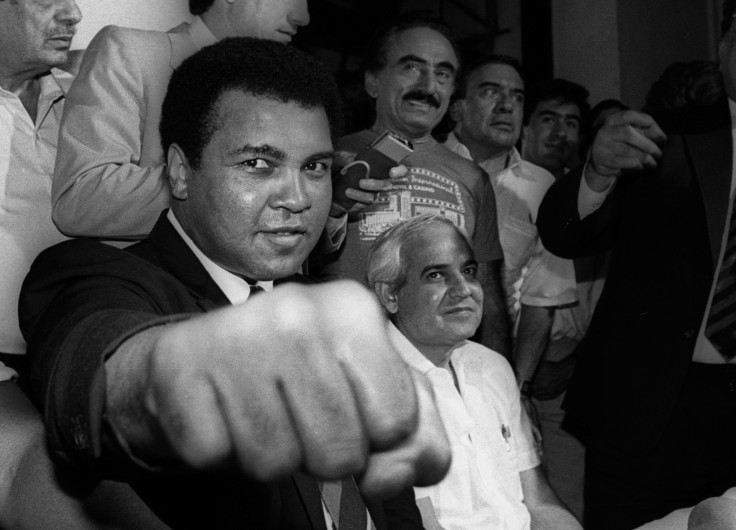
Boxing legend Muhammad Ali died Friday at age 74 after being hospitalized for a respiratory illness. “The Greatest” retired from boxing in 1981 and was diagnosed with Parkinson’s disease in 1984. Ali will be remembered as one of the greatest boxers of all time, with a personality that was among the most charismatic in history.
“Muhammad Ali shook up the world. And the world is better for it. We are all better for it. Michelle and I send our deepest condolences to his family, and we pray that the greatest fighter of them all finally rests in peace,” President Barack Obama said in a statement.
Ali’s boxing career was at times controversial. Born Cassius Clay, the boxer had a storied amateur career before turning pro Oct. 29, 1960. As Clay, he won the Light Heavyweight gold medal at the 1960 Summer Olympics in Rome. After amassing a 19-0 record to start his professional career, Clay challenged Sonny Liston for the heavyweight title. Liston was an overwhelming favorite coming into the Feb. 25, 1964, fight in Miami Beach, Florida, with a record of 35-1 and three straight knockout victories. Clay would win via technical knockout in the sixth round.
He would knock out Liston in the rematch, May 25, 1965, in Lewiston, Maine.
The first fight against Liston would be his last as Clay. He took the name Muhammad Ali after converting to Islam and was affiliated with the Nation of Islam. After eight successful title defenses after the Liston bouts, Ali refused to be drafted into the Army. His boxing license was suspended as his case went through the courts. Ali’s reasoning for not wanting to fight in the Vietnam War highlighted racial issues in the U.S. just after the passing of the Civil Rights Act of 1964.
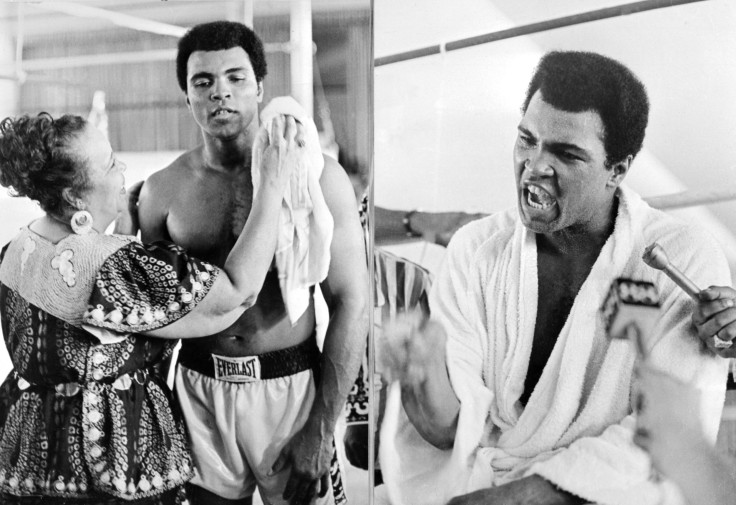
Ali’s conviction for dodging the draft was overturned in 1971, but the boxer had been able to get back in the ring Aug. 12, 1970. Ali’s career flourished after his suspension, with many fights given a colorful name to inflate their importance. There was the “Fight of the Century” against Joe Frazier in New York City in 1971, the “Rumble in the Jungle” against George Foreman in Kinshasa, Zaire [now Democratic Republic of the Congo], in 1974 and the “Thrilla in Manila” [Philippines] against Frazier in 1975.
Ali was known for his performances inside and outside the ring throughout his career. News conferences were spectacles that combined inflammatory statements and quotable boasts about his abilities.
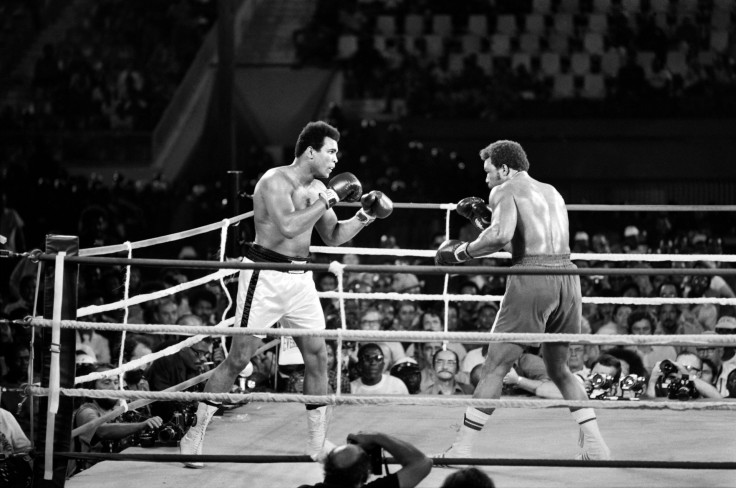
“For all his magic in the ring, he could be careless with his words, and full of contradictions as his faith evolved. But his wonderful, infectious, even innocent spirit ultimately won him more fans than foes — maybe because in him, we hoped to see something of ourselves,” Obama said.
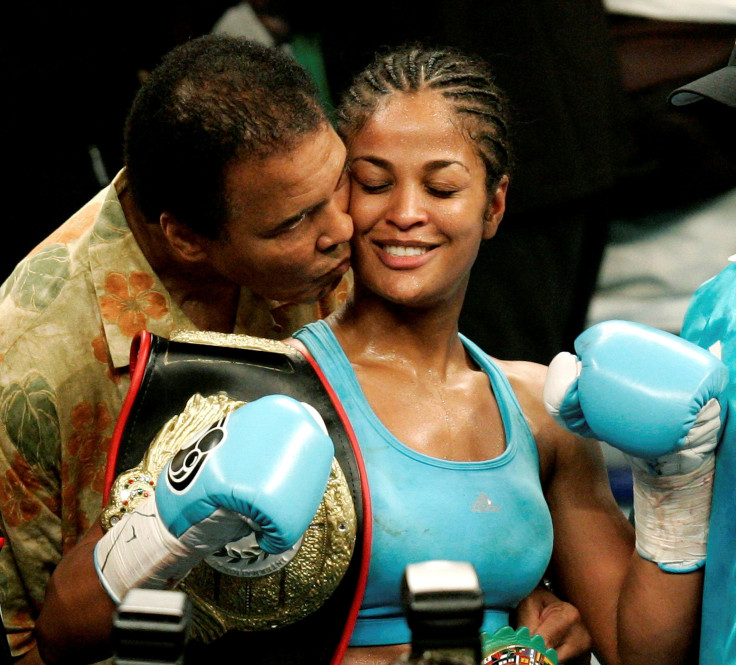
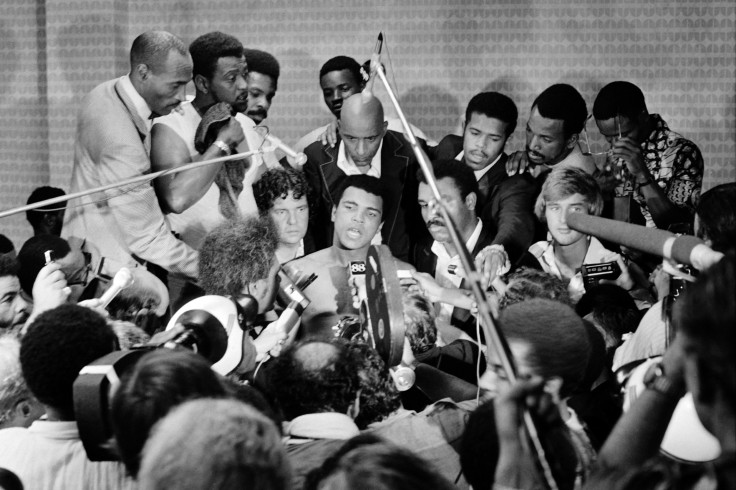
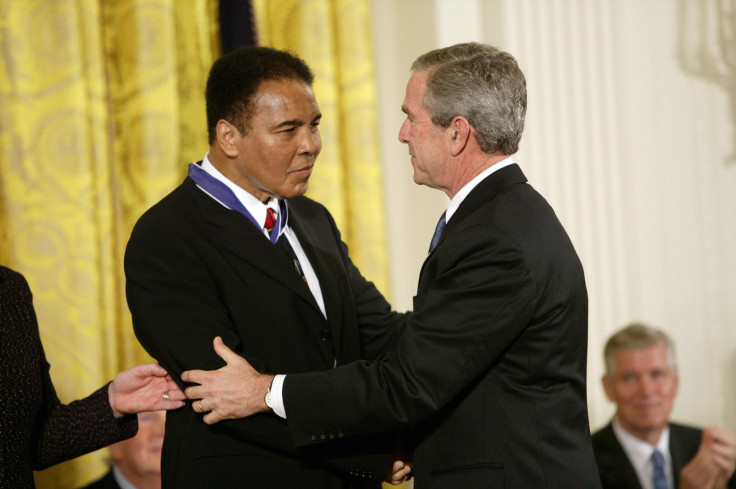
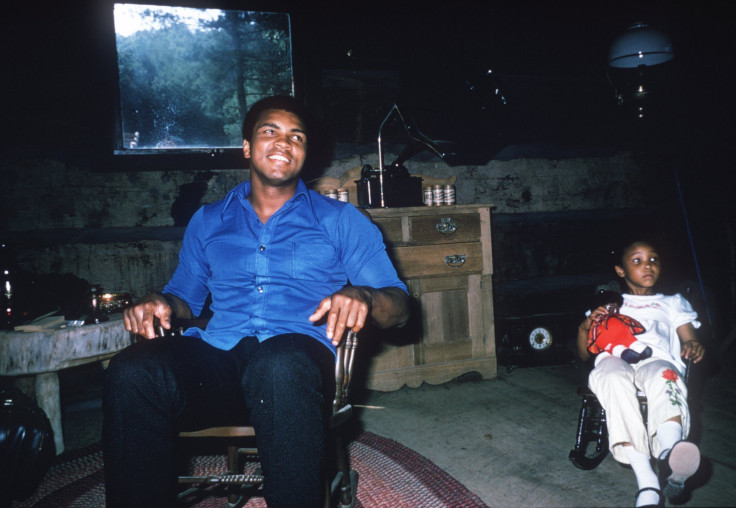
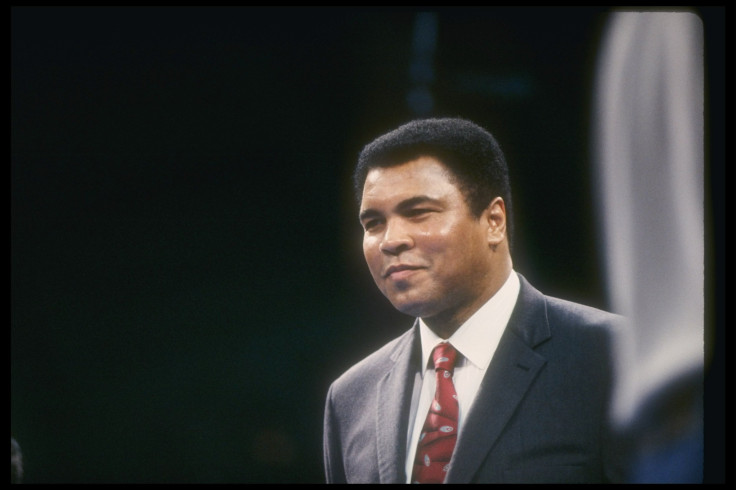
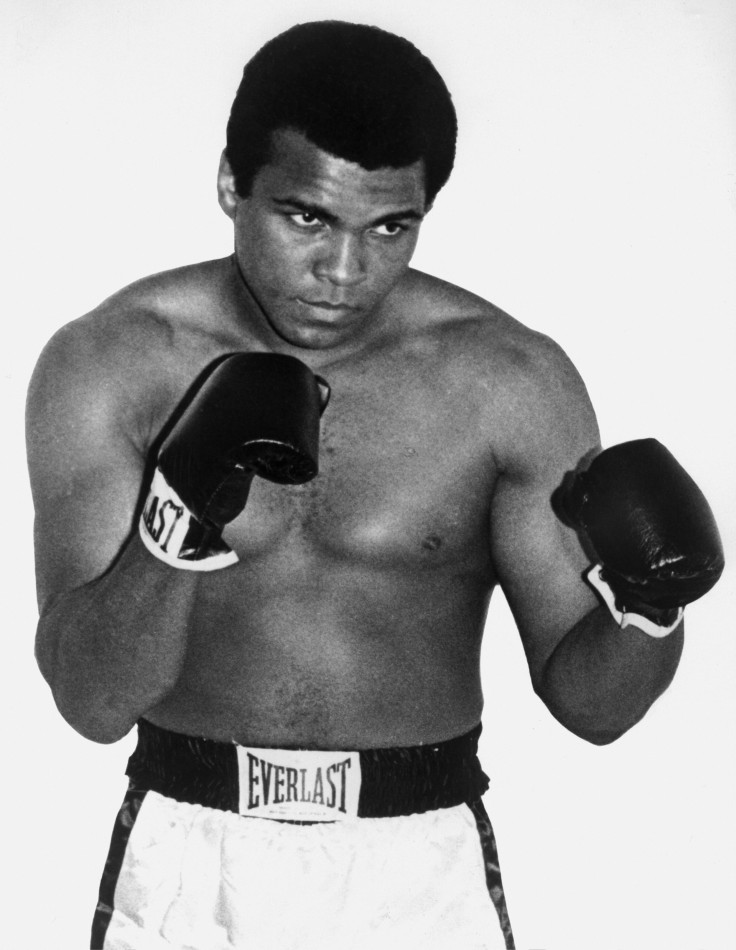
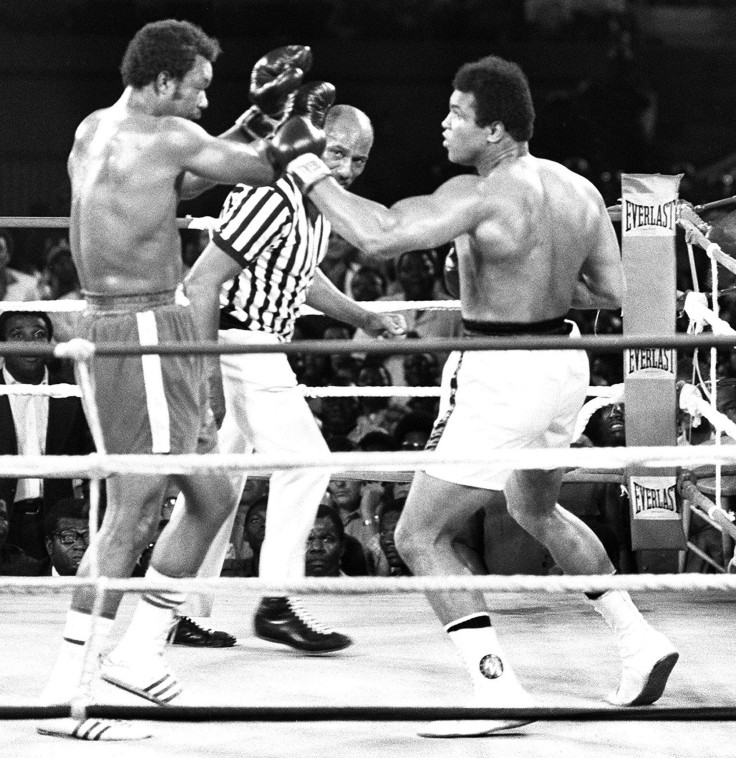
© Copyright IBTimes 2024. All rights reserved.






















